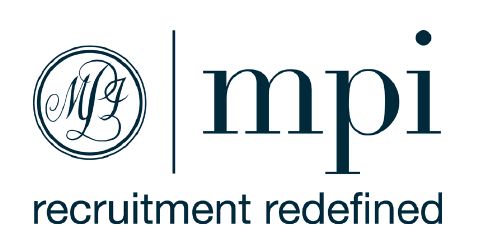
IR35 communication to contractors
IR35 tax legislation changes for Contractors:
April 2020
As you may have heard, the Government has announced that it will be making changes to the IR35 tax regime for contractors working for private sector clients.
The changes will take effect from April 2020 and may affect how tax is calculated and deducted from the pay of contractors who work via a personal service company.
The Government released the draft legislation in July 2019 and this largely reflects the proposals which the Government consulted on in May 2019, which we have explained in more detail below.
The Government has also announced some minor changes to the current regime for contractors working in the public sector, so that this mirrors the private sector regime. We have detailed below how this will affect working in the public sector from April 2020 onwards.
Overview
IR35 (also known as the ‘off-payroll rules’ or the ‘Intermediaries Legislation’) is a tax regime affecting contractors, which is designed to make sure everyone that does the same job in the same manner pays similar income tax and national insurance.
Where a contractor’s assignment is assessed to be ‘inside of IR35’ (which means that the contractor’s working arrangements have similar key features to that of an employee), income tax and national insurance must be deducted from the contractor’s pay.
Currently, in the private sector, it is the contractor’s personal service company that is responsible for assessing whether the contractor is inside or outside of IR35 and to make the required tax deductions.
The Government’s view is that a significant percentage of contractors are not assessing and paying tax correctly, which is the main reason for these reforms.
So what’s changing?
From April 2020, the responsibility for determining whether a contractor’s assignment is inside or outside of IR35 will pass to the end-client who receives the contractor’s services.
The responsibility for deducting and paying tax from the contractor’s pay will also move, to the party which pays the contractor’s limited company (usually, this will be an employment agency).
The change will not apply where the end-client is a small company, which means a company which meets any 2 of the following criteria:
· Annual turnover of not more than £10.2 million;
· A balance sheet total of not more than £5.1 million;
· No more than 50 employees. Where the end-client is a small company, the responsibility for assessing and paying tax will stay with the contractor’s limited company.
The size of the employment agency, if one is involved, is not relevant.
So what does this mean for you?
For existing assignments, if you are currently working via a personal service company and your assignment continues beyond April 2020, the end-client will need to determine whether your assignment is inside or outside of IR35 prior to the changes taking effect.
If the assignment (or payments made in relation to it) continue after April 2020 and the end-client decides that the assignment is inside of IR35, you may be required to change the model through which we engage with you for the remainder of the assignment – for example, you may need to move on to a PAYE model, work via an Umbrella Company or receive payments to your personal service company net of income tax and national insurance.
Essentially, if the end-client determines that your assignment is inside of IR35, MPI Limited will be required to deduct income tax and national insurance from your pay and pay this to HMRC.
If you are working on multiple contracts or for different agencies on a regular basis then it may be beneficial to you to remain using your PSC as all payments can then be tracked and any tax and NI that has already been deducted can be declared on your tax return and then at the end of the financial year you can offset what has already been paid against what may be due. Your accountant should be able to advise you in detail specifically to your own circumstances.
If the end-client decides that your assignment is outside of IR35, you will be able to continue working through your personal service company and no tax deductions will be made by MPI Limited.
If you currently work via our PAYE or Umbrella models, these changes will not affect your pay.
For assignments starting after April 2020, end-clients will need to specify whether an assignment is inside or outside of IR35 before you start work and we will make the status of the assignment clear to you when discussing contracting opportunities.
Further Information
The Government’s Check Employment Status for Tax (‘CEST’) tool is designed to help determine whether an assignment is inside or outside of IR35.
The Government’s IR35 help service is also available if CEST does not provide a clear answer:
Email: ir35@hmrc.gov.uk
Phone: 0300 123 2326
Web https://www.gov.uk/guidance/ir35-find-out-if-it-applies
However, it is up to the end-client to determine IR35 status and they may opt to use alternative tools/methods to make their decision.
CEST has received a lot of criticism from various industry bodies and lobby groups and the Government has stated that it will be making improvements to the tool and issuing further guidance prior to April 2020. We will keep you updated of any developments.
Disagree with the client's status findings?
The draft legislation requires end-clients to provide a ‘status disagreement process’ for contractors to challenge their IR35 determination.
End-clients are obliged to provide contractors with an IR35 determination, stating whether their assignment is inside or outside of IR35, and written reasons for the determination. If a contractor disagrees with the determination, he/she has the right to make representations to the end-client about why they believe the determination is incorrect and the end-client has 45 days to consider these and either change its determination or give its reasons for deciding that the original determination was correct.
Further guidance is due to be published about the level of detail that end-clients must go into when giving reasons for a determination/appeal decision and we will update you when we have further information.
What is MPI doing?
Over the coming months, we will be working closely with our clients to help ensure that they are prepared for the changes and that they review assignments and engage with contractors in good time ahead of the rules coming into force.
We are also working with other agencies and industry bodies to lobby HMRC, influence how the new regime is implemented and to ensure that the Government gives appropriate information and guidance to the industry as soon as possible.
We already have significant experience of helping clients and contractors deal with changes to IR35, following similar changes being introduced for our public sector clients in 2017.
We will keep you up-to-date with further information and guidance about the changes as the situation develops and what solutions we can offer you to help you deal with the new rules.
You can contact gemma@mpi.ltd.uk with any queries at this stage, there will be a dedicated IR35 team available once the final legislation is announced.
Changes in the public sector
The changes to the rules for private sector contractors largely mirror the existing IR35 regime in the public sector, which has been in place since April 2017.
The Government has announced that the same rules will apply to contractors working in both the public and the private sectors from April 2020, which means that there will be some minor changes to the public sector regime, as follows:
· The end-client will be required to provide the next party in the chain with a written IR35 determination and written reasons, which must then be passed down the contractual chain until it reaches the contractor.
· The end-client will also be required to provide the contractor with the written IR35 determination directly and provide written reasons to the contractor on request.
· The end-client will be required to provide the contractor with the right to appeal against the IR35 determination.
